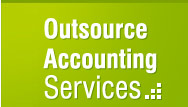 Sole
Proprietorship
Sole
Proprietorship
A sole proprietorship is one of the oldest forms of business that is
owned and operated by one individual. The proprietor is personally
liable for all debts and claims against the business. From taxation
point of view also, the owner and his business are one entity, which
means that business profits are reported and taxed on the owner's
personal tax return.
Features
Some of the important features of a sole proprietorship are:
- Ease of formation: This form of organization can be
easily formed as it does not involve any cumbersome legal
formalities. Registration of the firm is not mandatory. The owner of
the business is sometimes required to obtain a license pertaining to
the line of business from local government agency.
- Capital Requirement: The capital required by a sole
proprietorship firm is wholly provided by the owner himself .
- Control: The owner has complete control on all the issues
related to the business. He and the business are considered one
legal entity, so he can take all the decisions related to any aspect
of running the organization.
- Distribution of Profits/ loss: The owner is responsible
for any profit generated or loss incurred by the organization. The
owner has unlimited liability and it extends beyond his capital
investment in business.
- Legal Entity: Both the owner and the organization are
treated as one legal entity
- Lack of Continuity: The organization exists only so long
as the proprietor is alive. In the event of accident, illness or
death of the proprietor, the business comes to an end.
Advantages
- Ease of formation
- Better control and business administration
- Flexible and quick decision making
- No sharing of profits
Disadvantages
- Availability of Limited capital
- Difficulty in raising finance
- Unlimited liability of the proprietor
- Uncertain life span of organization





